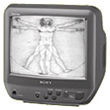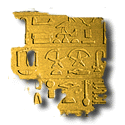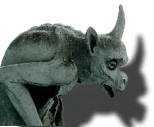Universities — like all large institutions, including political parties, religious groups, and national governments — are often slow to embrace change, and with good reason: the survival of the institution itself often rests upon the the maintenance of tradition and habit.
It is not surprising, then, that a major like media studies may meet with some suspicion from people who genuinely care about learning, about the integrity of the university, and above all, about the student herself: When there are so many traditional degrees available in fields like English Literature, Sociology, and Philosophy, why spend four years on a major that some people have never even heard of?

You have already read about how the Department of Media Studies works to shape itself as a modern response to the tradition of a liberal arts education. But it is also interesting to note that in spite of the contemporary feel of the phrase media studies, promoting a critical awareness of both medium and message is hardly a new concept. At The Catholic University of America, our curriculum insists not only that students explore and discuss contemporary ideas about the media, but that students read and write about some of the West's earliest media critics.
Media criticism is nothing new: Plato and Victor Hugo

Plato tells us in the Phaedrus, for example, that Thoth (the Egyptian counterpart to Mercury and Hermes), excited by his invention of "writing," presented this novelty on a heavy piece of parchment to the Pharaoh Thamus, and praised his new technique loudly, claiming that it would allow mankind to remember what they were otherwise doomed to forget: family histories, herd counts, real estate deals. But the Pharaoh was not so satisfied. "My skillful Thoth," he said, "memory is a great gift that ought to be kept alive by training it continuously. With your invention people will not be obliged any longer to train memory. They will remember things not because of an internal effort, but by mere virtue of an external device. They will become lazy, and slothful."

But the perils of memory in the face of writing are small, compared to those in the face of printing. Victor Hugo's sprawling Hunchback of Notre Dame features a poignant scene that remains one of the West's most eloquent moments of media criticism: holding his first printed book in his hands, the scholar turns away from his manuscripts and toward the giant church looming behind him. "Ceci tuera cela," he observes despondently, pointing first to the newly-printed book, and then to the towers of the church. "This will kill that:" The scholar fears that the printed word will make the vivid images and teachings of the Church less important to the daily lives of ordinary people.
Read more about text and media
